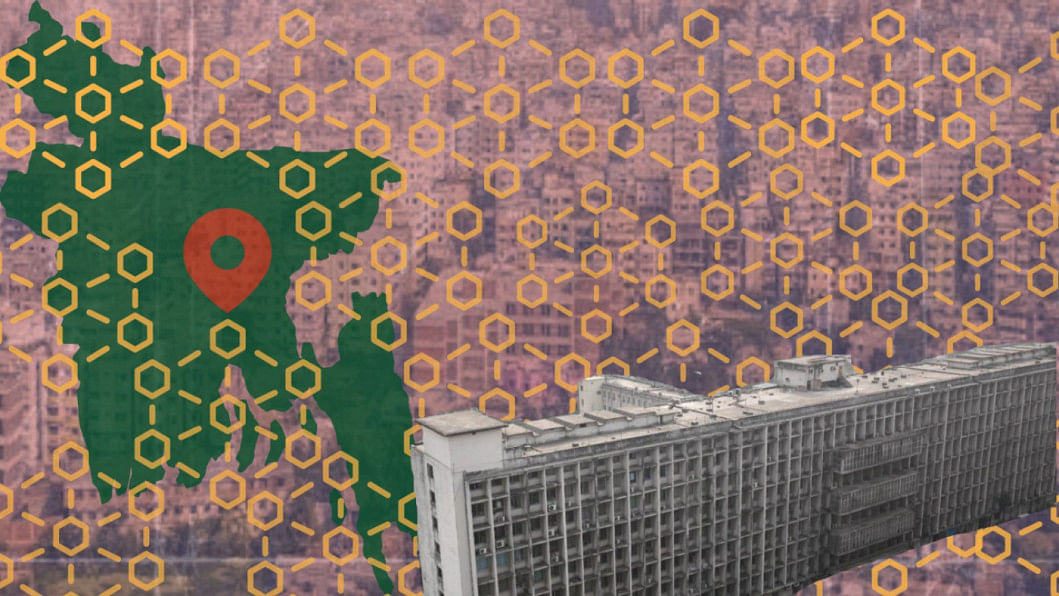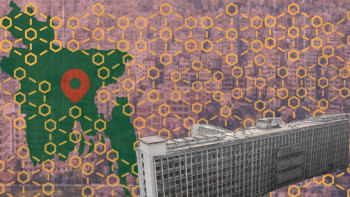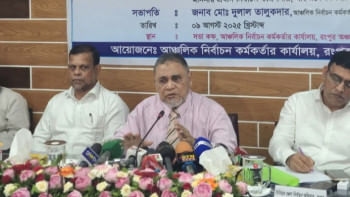Why is urban local government reform necessary?

Given the rapid expansion of urbanisation, technological development, and various civic problems and crises arising from development, there is a need to make the urban governance system more effective, efficient, inclusive and democratic. Unfortunately, the posts of mayors and councillors have been vacant since the July uprising last year. While we wait for their offices to start operating at full capacity, we also need to address the fact that they cannot simply resume operations as they did during the previous government's era. Bangladesh's urban local government system, as we know it, is not an effective mechanism for public service delivery.
Despite the local government system being called the cradle of democracy, one of the characteristics of such institutions—city corporations and municipalities—is that they lack democracy in the decision-making process. The council is supposed to function as a policy-making forum where all the elected councillors of the concerned corporation or municipality participate. But in reality, there is a huge difference in terms of political influence, skills, and educational qualifications between the councillors and the mayor.
The mayor has formal and informal control over the council, as he manages all administrative development of the corporation/municipality and controls the budget. The council is supposed to be a mini-parliament. However, a large portion of the councillors are allegedly leaders of various criminal gangs involved in extortion and other offences, due to which an environment of open discussion and debate is missing. Consequently, the opportunity for public interest issues to be raised before the council is reduced, leading to its failure as a democratic institution.
Although the Local Government (City Corporation) Act 2009 legally supports it, the exclusive power of the mayors in urban local government is a major hindrance to the decentralised decision-making process. The matter is more practical than legal. The mayor's strong political standing, combined with potential differences in education and other factors, allows them to dominate the urban local government council, stifling democratic discourse and concentrating power in their hands. In many cases, mayors make decisions unilaterally, ignoring the opinions of the councillors and other stakeholders, which turns governance in the municipality and the city corporation into an arbitrary process.
In the municipality and city corporation, the ward is the electoral unit of public representation and executive area, and the main unit for providing citizen services. But in reality, this unit has not developed into an independent and effective institution. It is not possible to provide services or undertake development projects for citizens at the ward level. In big cities, there is another type of issue: people from villages are coming to cities like Dhaka and Chattogram every day. Providing necessary services to this large number of people has become a major challenge for city corporations. There is a severe demographic imbalance in urban areas.
According to the Local Government (City Corporation) Act 2009, every corporation is supposed to have at least 14 standing committees, and according to the Local Government (Municipality) Act 2009, at least five standing committees—such as the Finance Committee, Urban Planning Committee, Law and Order Committee, and Public Safety Committee. But in reality, these committees are often ineffective. The committee members need training and expertise. There is also a lack of logistical support required to make the committees function. These committees are taken lightly. As a result, they exist mostly on paper.
The main sources of revenue for municipalities and city corporations are local taxes, fees, and grants from the central government. However, due to inefficiency in tax collection, limited tax collection scope, tax evasion, and corruption among those involved in tax assessment, the amount of revenue collected is very low. In addition, non-tax revenue sources are limited. Due to all these reasons, budget deficits in municipalities and city corporations have become a common occurrence.
The shortage of skilled human resources in city corporations and municipalities has emerged as a major challenge to effective urban administration and public service delivery. Another long-standing problem is weak coordination among service delivery agencies. For example, there is a lack of effective coordination between the Dhaka South City Corporation (DSCC), WASA, and RAJUK. These agencies often work without coordination, resulting in complications in urban planning, water supply, and infrastructure development.
It is said that local government is the government at the doorstep of the people. But the reality is that, apart from voting in elections at the end of the term, there is no institutional opportunity or practice for citizens to participate in the decision-making process. As a result, ordinary people fail to make their priorities or needs known to policymakers.
There is no doubt that urbanisation is happening rapidly in Bangladesh. With the increase in population in urban centres, the demand for citizen services is increasing. But the capacity to meet this increased demand is lacking in most municipalities. Moreover, observation has shown that several rural areas have been upgraded to municipalities for political gain, without considering the real situation.
To democratise the municipalities and city corporations, major changes will have to be made in the current structure. For this structural change, the city corporation will have to be transformed from a "presidential model" to a "parliamentary model." The wards should be the main outlets for providing services to citizens. Essential citizen services such as birth and death registration, trade licences, and waste management will have to be provided by the concerned ward.
Due to unplanned urbanisation, traffic congestion, waterlogging, floods, and environmental pollution are increasing in Dhaka and other cities. Based on the Local Government Reform Commission's 2024 report, a scientific master plan is essential for the sustainable development of the city. Each city corporation should prepare a scientific and sustainable master plan, which will prioritise land use, transportation, housing, and environmental balance. Prevention of illegal establishments and control of urban expansion should be coordinated with RAJUK. Strict implementation of zoning policies should be determined for residential, commercial and industrial areas.
Dr Mohammad Tarikul Islam is professor at the Department of Government and Politics, Jahangirnagar University. He is a member of the Local Government Reform Commission.
Views expressed in this article are the author's own.
Follow The Daily Star Opinion on Facebook for the latest opinions, commentaries and analyses by experts and professionals. To contribute your article or letter to The Daily Star Opinion, see our guidelines for submission.


 For all latest news, follow The Daily Star's Google News channel.
For all latest news, follow The Daily Star's Google News channel. 




Comments